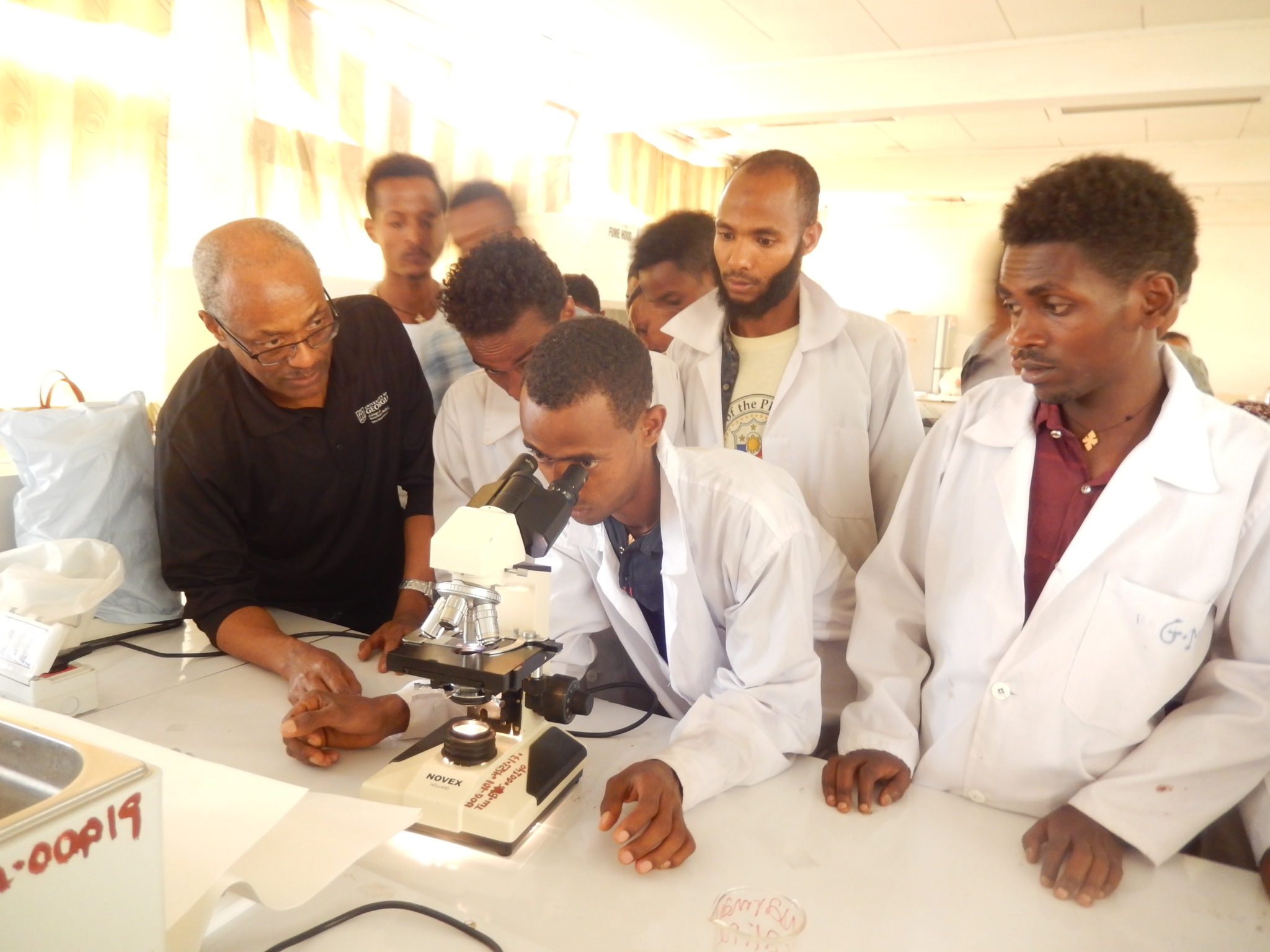When Moges Woldemeskel Woldemariam, professor of veterinary pathology and section head of histopathology and necropsy at the Tifton Veterinary Diagnostic and Investigational Lab, taught in Ethiopia early in his career, he was the only trained pathologist at the only veterinary school in the country. Now, there are more than a dozen schools in Ethiopia, and many of his students from three decades ago teach today’s students.
That fact is hard to fathom, but it becomes even more inspiring when Woldemeskel talks about his first trip back to Ethiopia in 18 years. While there, he and colleagues conducted a pathology training workshop at a university in northern Ethiopia. They also visited two other universities to speak and teach veterinary students in March 2019, which was the first time Woldemeskel was able to secure grant funding to travel to his home country.
“I don’t have the words to express how I feel,” he said. “It was a dream and rewarding to see the response from the trainees there. It was unforgettable.”
As part of the week-long training, Woldemeskel and colleagues showed students how to look into the pathogenesis and mechanisms of a disease. They made the talks interactive by walking through examples in the necrosis lab, where they clinically diagnosed diseases together.
Woldemeskel also told them about his career, including how he earned a DVM degree in 1987 as one of the early graduates of the only veterinary college in Ethiopia at the time. He taught as an assistant lecturer and lecturer for five years and then completed graduate training and a PhD at the University of Veterinary Medicine in Hanover, Germany. He returned to Ethiopia and taught pathology, clinical pathology, pathophysiology and parasitology for several years and then was at the University of Tennessee at Knoxville as a Fulbright Visiting Scholar before joining the UGA Tifton campus in 2005.
The students in Ethiopia were inspired by his career path and experience. In fact, Woldemeskel once worked in a clinic at the veterinary college in northern Ethiopia where the one-week workshop took place. At the time, a histopathology lab wasn’t available, and he didn’t have access to tissue processors. Instead, he collected tissues from the abattoir and used the medical school histopathology laboratory to process and read tissue slides.
“I told them the only secret to being successful is doing the job,” he said. “Decide what to do and do it well. There is no shortcut.”
During the trip, Woldemeskel visited another university in the southern part of Ethiopia, which was near his hometown. He shared with the students that he grew up in the area but had to travel away from home for his junior secondary, high school and college educations because they weren’t available in the area at the time.
“They’re lucky now to have a university in front of their house, and they were very happy and inspired,” he said. “Everything is possible, I tell them.”
Woldemeskel’s trip was the second in a four-part training program that will help Ethiopian veterinarians work independently in the veterinary pathology field. He plans to develop collaborations with the animal science and veterinary programs to expand multi-country and multi-disciplinary research and training opportunities.
“UGA is a big university with a lot of highly experienced professionals, and it’s highly rewarding to go help people who need someone to train them,” he said. “I’m proud that I’m part of a university that has extended its arms to help internationally in areas of need.”
